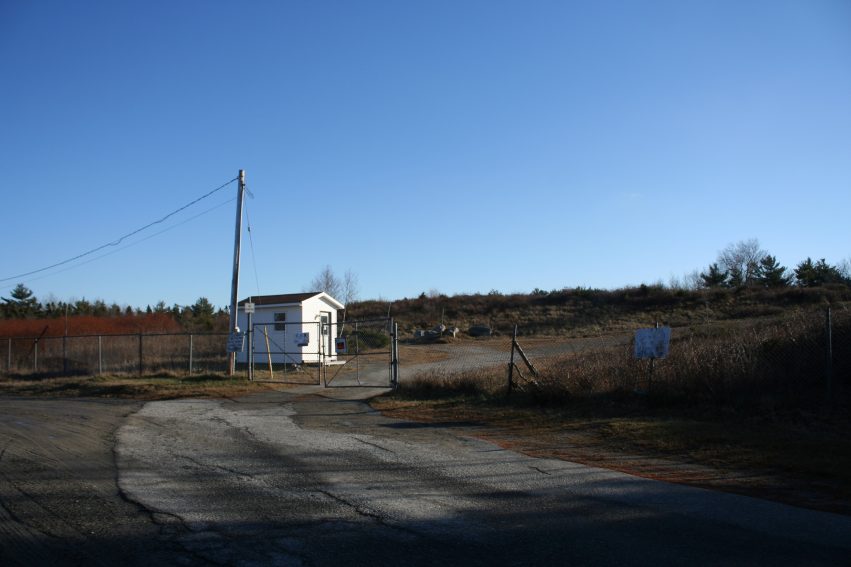KJIPUKTUK (Halifax) – While municipalities reliably test the quality of water delivered through the utilities they manage, rural residents who rely on wells are on their own.
Now a new organization, Rural Water Watch Association (RWW), will respond to rural community members’ calls to test their water quality, addressing concerns about living close to toxic sites like landfills or incinerators.

RWW is a non-governmental organization (NGO) formed earlier this year by Nova Scotia Community College science instructor Dr. Wilber Menendez-Sanchez, hydrogeologist Fred Bonner, Shelburne artist and activist Louise Delisle, and Dr. Ingrid Waldron, a Dalhousie professor who leads the ENRICH project, an initiative that supports racialized and marginalized communities that face environmental issues.
“We were shocked to realize we were the first ones to actually go to the community and provide this service.” Menendez-Sanchez
The NGO builds on the ENRICH Project’s activities to address long-standing water contamination concerns in Shelburne and Lincolnville.
Wilber Menendez-Sanchez, a board member of the NGO, remembers being astonished to learn that Lincolnville had been asking in vain for an independent study of their water for over thirty years. Lincolnville is located near a landfill that services large parts of eastern Nova Scotia and Cape Breton Island. Community members’ concerns about their water quality had been met with dismissiveness by municipal and provincial governments.
“We were shocked to realize we were the first ones to actually go to the community and provide this service,” Menendez-Sanchez recalls. “That’s ridiculous with the amount of resources the province has. If it’s not possible for the government to do this, then another institution has to carry the work.”
Fred Bonner, also a board member, explains that in public water systems municipalities must ensure that water is clean, but in rural areas, individuals are responsible for their own wells. “So there is a huge disconnect between government policy and programs that take care of public systems and rural individual systems,” Bonner says. “The province puts tremendous effort into public systems and provides information to the rest of the population … mostly online. In some cases, the people that need this vital information the most have the least ability to access it.”
Because private companies conduct water quality testing, the cost can be prohibitive for an individual. A basic bacteriological test costs around $60, and Nova Scotia Environment recommends this be done twice a year. For a full analysis, which is necessary to test for abnormalities that may come from nearby pollutants, the cost increases to $600–$800.
If there is an incinerator nearby, smoke can contaminate the air and settle in the ground; if there is a dump nearby, garbage trucks could be leaking waste leachate as they drive through the area. “Testing groundwater is an expense that marginalized or underrepresented communities need help with so they don’t have to keep begging for years to get that service provided,” Menendez-Sanchez says, “especially because it may induce cancer or other diseases in people who are drinking that water.”
The NGO wants rural communities, from Yarmouth to Cape Breton, to contact them if they suspect a problem with their water due to a nearby source of pollution. RWW aims to raise the funds required to conduct the necessary testing for communities that need it. These funds will be used to sample and test water, but RWW also seeks to build the capacity of the communities they work with to do ongoing testing, research, fundraising, and advocacy themselves.
“You get a sense of empowerment when you have control, are able to make decisions, and test your own water,” says Ingrid Waldron, a board member of RWW and director of the ENRICH Project.
She emphasizes that, once you know there’s a problem with your water, the skills required to get to the right person can be a barrier due to government bureaucracy and the technical language required to communicate water quality problems.
Learning those skills is part of community capacity-building, says Bonner, which is partially done through focus groups where every question or concern is addressed. “We don’t walk in there and say, here’s what you have to do. We go there to ask, what is the problem? Sometimes people struggle to identify what the problem is—they just know they have bad water.”
“I think some people know there’s something going on with their water, but they don’t actually know what it is,” Waldron agrees. “We want to educate, train and develop community members’ skills so they have the ability to test their own water, as well as the literacy required to communicate with scientists and government about pollutants and contaminants.”
In addition to a technical understanding of the issues, articulating the emotional impact of living near a toxic site is also necessary for effective self-advocacy. Waldron notes that “it’s also important for government to understand that it has a real impact on one’s psyche, our physiological stress response, and the level of stigma people feel when they’re living near a dump or any other contaminated site.”
The absence of a program to help rural, marginalized Nova Scotian communities access safe water is glaring. So is the lack of meaningful government consultation in areas like Guysborough, one of the poorest in Nova Scotia and, not coincidentally, the location of the landfill that accepts a large portion of the province’s garbage.
“It’s all about power in this case,” Menendez-Sanchez observes. Through its work, RWW hopes to challenge power inequity: the political power to influence decisions, the economic power to pay for tests and remediate contaminated water, and the cultural power that allows participation in technical conversations and self-advocacy.
“First Nations and African Nova Scotian communities are closer to big factories and dump sites,” Menendez-Sanchez points out. “Sometimes they have to choose between paying for an $800 water analysis, or putting food on the plate for the next few months. Food will come first. As a society that should be our responsibility, but somehow it’s not.”
So, RWW aims to shoulder that responsibility—for now. “We don’t want government to feel that they are not accountable. This is basic work they should be doing that they’re not,” says Waldron, “but in the meantime, people need to have their water addressed.”
The NGO will do much more than the practical work of facilitating water sampling—the board members consider RWW an educational institution that will train students in research methods, community engagement, and more. They will soon hire a coordinator to arrange funding, organize community consultations, and begin a literature review of the technical, social, medical, and legal implications of the work.
But the most important step in building this new NGO is reaching out to communities that need water testing done and want to learn how to do it themselves. To connect with the Rural Water Watch Association, please contact Fred Bonner at fred@eduterra.ca.
See also: Fighting environmental racism in Nova Scotia
Check out Fazeela Jiwa’s website.
If you can, please support the Nova Scotia Advocate so that it can continue to cover issues such as poverty, racism, exclusion, workers’ rights and the environment in Nova Scotia. A pay wall is not an option, since it would exclude many readers who don’t have any disposable income at all. We rely entirely on one-time donations and a tiny but mighty group of dedicated monthly sustainers.




This is very helpful. My partner & I have recently moved to Canning, NS and are amazed by the lack of information available regarding agri-chemical contamination of ground water, wells, streams, etc. I find it hard to believe that decades of industrial farming has left no trace in the environment. My research continues, but to date, it appears that not one Government agency, charged with the health of citizens, have ever tested water in this environment. Anyone with further info. re: water testing in the valley or how the public might access the results, please get in touch – thanks!